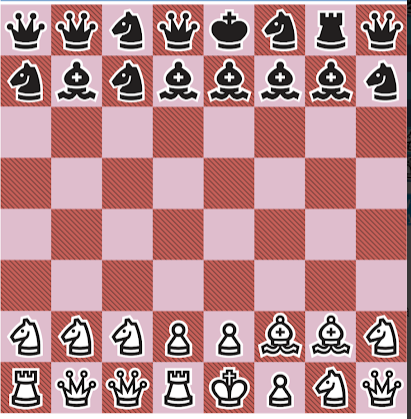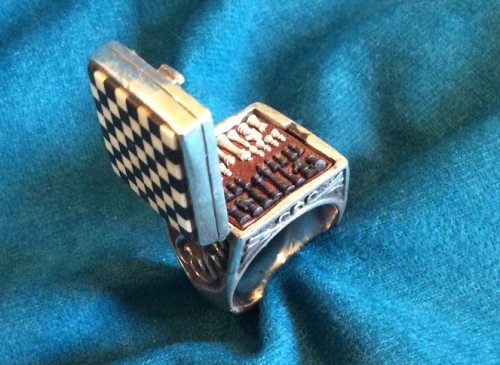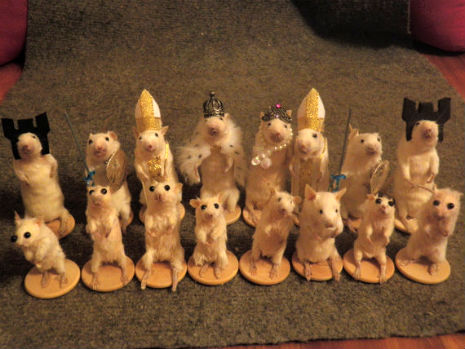Selim Akl’s website has a suggested chess variant that relies on quantum-like states,
Quantum Chess, a variant of the chess game invented by Selim Akl, uses the weird properties of quantum physics. Unlike the chess pieces of the conventional game, where a pawn is a pawn, and a rook is a rook, a quantum chess piece is a superposition of “states”, each state representing a different conventional piece. In Quantum Chess, a player does not know the identity of a piece (that is, whether it is a pawn, a rook, a bishop, and so on) until the piece is selected for a move. Once a piece is selected it elects to behave as one of its constituent conventional pieces, but soon recovers its quantum state and returns to being a superposition of two or more pieces. Why Quantum Chess? Conventional chess is a game of complete information, and thanks to their raw power and clever algorithms, computers reign supreme when pitted against human players. The idea behind Quantum Chess is to introduce an element of unpredictability into chess, and thereby place the computer and the human on a more equal footing.
The site includes rules for one possible variation of quantum chess that can be played with a Java applet linked to


